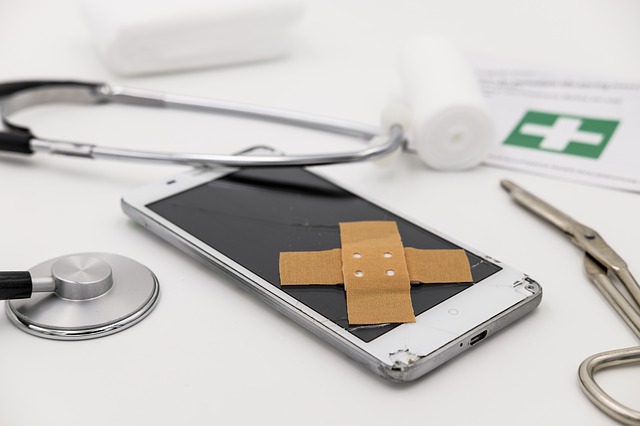Recently, having turned the wrong side of 50, I decided to get fit and start running again. So I went out and bought the latest gear! – a smart watch with heart rate monitor and heap loads of other technologies such as GPS and Bluetooth. My watch connects to other devices so you can read and analyse your performances, recovery times, goals, etc. It takes quite some time to become familiar with running jargon – average running cadence, stride length, elevation gain and the like.
The watch can also receive text messages and weather updates – this bugs me as running takes you out into nature, only to be held by an invisible tether to the office desk…
Separately, I read an article recently on ‘What I learnt by living without artificial light’ by BBC reporter Linda Geddes. As I read this article, I found myself wandering through the aisles of the internet reading various studies on our interaction with technology and more to the point, our dependency on technology. As I left the internet shop (so to speak), I looked down into my basket and came to the conclusion that all the items there really only contributed to my creature comforts but didn’t really increase my sense of wellbeing or make me inwardly a more happier and peaceful person. In fact, if anything, the opposite is true.
Here are some staggering stats (gleaned from the internet, of course!)
- Stat No 1: On average we spend 8hrs 41mins texting, talking, typing, gaming, listening or watching.
- Stat No 2: We check devices on average 54 times per day, this figure is even higher among younger people. Each time we send or receive a message, in whatever medium, the good feeling we experience and sense of anticipation causes the release of dopamine in our brain which plays a major role in the motivational component of reward-motivated behavior.
- Stat No 3: With a life expectancy of over 81.4years in the developed world and taking into account average sleep of 8hrs 21mins per day, this means we spend 27years on devices!
- Stat No 4: Assessment of Sleep Hygiene Using the Sleep Hygiene Index concludes that reading bright screens within one hour of bedtime stimulates the brain and dramatically reduces the quality of our sleep.
- Stat No 5: 75% of content we read on-line is unsolicited, and usually off topic. While not easily measured, most times the internet effects our moods, usually in a negative way and impacts on the way we interact with others.
My teacher, Sri Chinmoy spoke quite a few times on the effect that computers can have on meditation, spirituality and one’s peace of mind. He once said: When it is a matter of spirituality, if you cannot live without the computer, then I can say that your spirituality can live without you. True spirituality can live without you if you cannot live without your computer and your e-mail. Spirituality is a subject of the heart, of the soul.
Most of us realise and acknowledge that we probably spend too much time on devices, but how much time?
Our time on devices….
How much time do we spend each day on devices?
- Do we benefit overall from time spent of devices?
- Are we happier?
- How consciously aware are we when on devices?
- Do you leave your device beside your bed before you sleep?
- Do you check your device first thing the morning?
- Do you check your device while in company / socialising?
- Do you check your devices during recreation?
- Do you read devices while eating meals?
I will avoid the judgmental conclusion to the questions above.
The Fix!
If we place more importance and value on our time, then we are likely to use time more efficiently. The majority of people agree that we are too busy and stressed out – precisely because of the choices we make. We are creatures of habit and as such it’s easy to change once we are inspired and motivated. It is said it takes 21 days of practice to form a habit – so set up a 3 week plan and make simple lifestyle changes. We can easily empower ourselves when we experience the positivity brought about by change.
Find me a buddy…
When you pair up with someone, you can inspire and help each other to set and keep goals, with frequent progress reports, rewards and the like – by telephone preferably……
Starting my day
Purchase a regular alarm clock, avoid permanently lit / back lit clocks as the light can be disturbing. In this way, you can avoid leaving your mobile phone by the bedside.
Timetable screen appointments!
A pilot doesn’t receive a WhatsApp message to say ‘it is clear for take off’, – therefore texting, sending mms, emails and the like are forms of communication which do not require immediate responses. If the matter is urgent, people can use the phone.
- Avoid devices while you carry out your morning activities; (meditation, morning run, taking a shower, eating breakfast) set a time say 8.00 to 9.00 to check emails, messages, on-line news, etc
- Turn off notifications sounder on your devices and leave your devices in a designated area, away from work place, kitchen, bedroom, etc
- During lunchtime – leave you phone by your desk – you are entitled to ‘time free lunch time’, you will surprised how liberating it is to eat your lunch knowing you cannot be interrupted. Image your whole day like this!
- Towards the end of the day (not late evening), preferably before dinner set a time from say 5.30-6.30pm check your devices. You will find that a high percentage of non-essential messages have been dealt with by the time you get to read your messages.
The sun shines for everybody.
Some people take advantage
Of it and some people do not.– Sri Chinmoy
